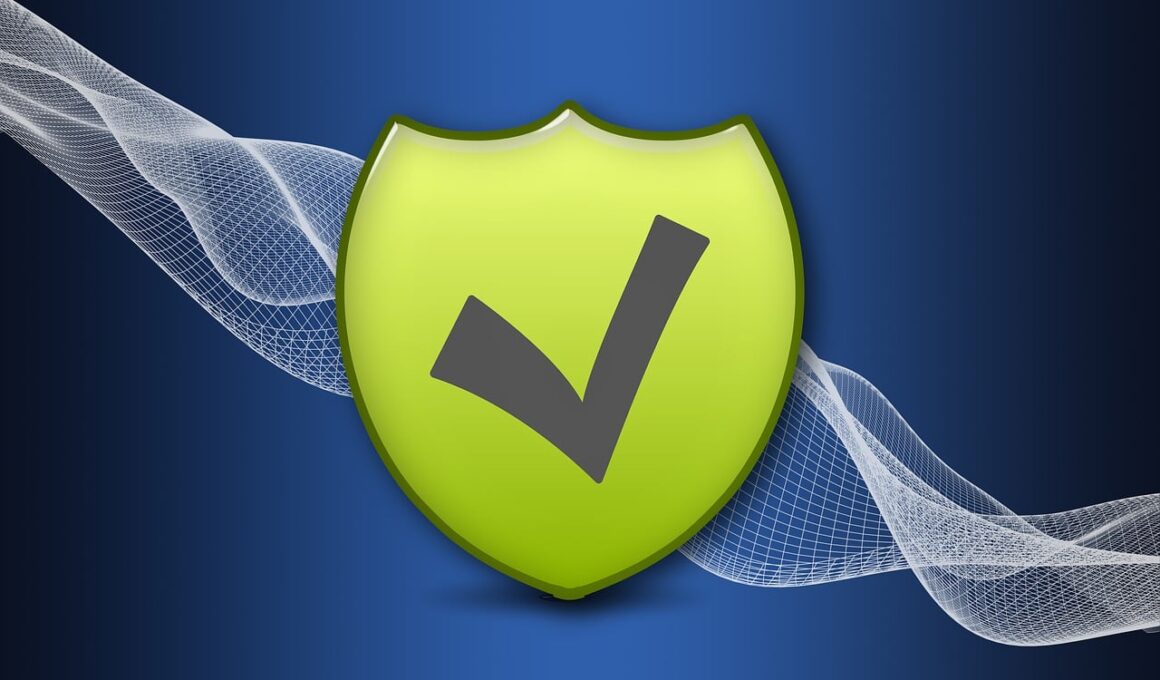Content Marketing Software Security: What Marketers Should Consider
In today’s digital landscape, content marketing software has become vital for businesses aiming to engage audiences and drive conversions. Yet, marketers must consider security as a core component of their strategy. These platforms often house sensitive information, including customer data and marketing strategies, making them prime targets for cyberattacks. Without proper security mechanisms, not only could valuable data be lost, but brands can also suffer significant reputational damage. It’s essential for marketers to assess the security features of their chosen software, keeping in mind that vulnerabilities can lead to disastrous breaches. A thorough understanding of the software’s encryption protocols, access controls, and user authentication processes is crucial. This includes evaluating third-party integrations that may expose weaknesses. Furthermore, compliance with regulations such as GDPR and CCPA is not optional; non-compliance can result in hefty fines and legal repercussions. Thus, as you select a content marketing platform, ensure it prioritizes security measures integral to protecting your business and your audience. This diligence will bolster your marketing efforts by fostering trust with consumers, as they feel more secure engaging with brands that demonstrate a commitment to data protection.
Security measures in content marketing software should include advanced encryption methods to safeguard data both at rest and in transit. Marketers must seek software solutions that utilize encryption standards such as AES-256. This type of encryption is widely regarded as one of the most secure forms available, ensuring that unauthorized access to sensitive data is virtually impossible. Additionally, incorporating two-factor authentication (2FA) enhances security by requiring users to provide two forms of verification before accessing accounts. Furthermore, regular software updates are critical to maintaining robust security. Vulnerabilities are consistently identified; without updates, software becomes susceptible to exploitation. Vendors should also perform routine security audits and penetration testing to discover and rectify potential security gaps before they can be affected. Marketers should inquire about their software provider’s incident response plan, as a proactive approach to potential breaches will minimize damage. Training staff on best security practices also plays a role in overall security. By ensuring everyone understands their role in maintaining data security, companies can enhance their defenses against potential threats significantly. All considered, a robust security strategy in content marketing software is pivotal to ensuring the integrity of data and campaigns.
Choosing the right content marketing software involves analyzing the provider’s security track record. Investigating past data breaches can provide insight into the reliability of a vendor. It’s equally important to assess how the vendor responded to previous incidents. Transparency and communication during and after such events reflect the maturity of the vendor’s security measures. Additionally, organizations should look at customer reviews or case studies regarding security experiences with specific software tools. Understanding how other marketers have navigated security issues can lend helpful insight into potential risks. Evaluating the vendor’s adherence to security certifications such as ISO/IEC 27001 and PCI DSS confirms that they meet internationally recognized information security standards. Such certifications indicate that the provider has implemented necessary controls to protect data adequately. Further, look for software that maintains regular audits by independent third parties; these assessments can reveal compliance with stated security guidelines. If a security breach does occur, a responsible vendor will have measures in place to inform affected users promptly. Not only does this practice demonstrate accountability, but it also facilitates a quicker recovery from disruptions while maintaining user trust and confidence in the service.
Vendor Reliability and Compliance
The reliability of a vendor is influenced significantly by their commitment to compliance with industry regulations. Compliance frameworks provide a roadmap for maintaining customer privacy and safeguarding sensitive information effectively. Understanding privacy laws applicable to your market will aid in ensuring that the software aligns with these legal standards. Exploring the security measures that content marketing software provides for compliance is critical. Marketers must validate that vendors are current with laws like GDPR, HIPAA, or CCPA, essential depending on the nature of the data they handle. Additionally, consider how software facilitates user rights, such as data access and deletion, as mandated by various regulations. Vendors that provide clear consent management options and data processing agreements exhibit their dedication to ethical data handling practices. Regular training updates and resources should be provided by vendors to keep users informed about compliance expectations. Moreover, marketers should have exit strategies in place, ensuring that they can securely migrate their data if they choose to switch software. The ability to retain regulatory compliance throughout this transition is paramount in avoiding legal ramifications and maintaining trust with customers.
Another essential consideration is the vendor’s disaster recovery and business continuity plans. In the event of an incident that disrupts service or compromises data, having a well-defined recovery strategy is crucial for minimizing downtime and data loss. Marketers should inquire about the frequency of data backups and their storage locations. Ensure that these backups are kept secure and that the processes for restoring data can be executed in a timely fashion. Moreover, testing these recovery plans regularly is vital for confirming their effectiveness. Software that includes comprehensive disaster recovery features guarantees a smoother path forward after adversity strikes. Marketers should also evaluate how the vendor communicates during a crisis, as prompt and transparent communication can significantly impact customer trust. Transparency surrounding potential issues allows users to make informed decisions regarding continued relationships with the software provider. In a realm where data is the lifeblood of marketing efforts, knowing that your vendor can manage unexpected disruptions will provide peace of mind. This proactive approach promotes resilience and reliability, inspiring ongoing confidence in the vendor’s capabilities.
Data Management and User Access
Effective user access management is a vital security feature in content marketing software. Marketers should look for platforms that allow administrators to control permissions at granular levels, ensuring that users only access data essential for their roles. The principle of least privilege should always be enforced, as it minimizes the risks posed by compromised accounts. Additionally, businesses should conduct regular audits of user access logs to monitor operations and identify unusual behaviors that may indicate potential security breaches. Implementing session timeout policies is also an effective strategy to mitigate risks associated with unattended accounts. This feature automatically logs out users after a predetermined duration, preventing unauthorized access. The ability to assign dual approvals for sensitive actions will also add an extra layer of oversight. Moreover, to handle sensitive data, ensure that marketing software enables secure sharing of information only with trusted parties, preferably with built-in encryption for those communications. This protection ensures that data remains confidential during transactions or collaborations. Overall, prioritizing user access management in content marketing software significantly aids in protecting both company information and customer data, thereby maintaining trust within client relationships.
Prioritizing the cybersecurity education of team members is essential to reinforcing the security of content marketing software. Even the most robust systems can be compromised through human error, making it vital to conduct regular training sessions that cover emerging threats and best practices. This education should encompass recognizing phishing attempts, safeguarding passwords, and understanding the importance of secure data handling. Marketers should foster a culture of security awareness and responsibility, encouraging employees to report potential vulnerabilities without fear. Additionally, providing resources such as manuals or quick reference guides can reinforce their knowledge. Implementing simulated phishing attacks can also serve as valuable training exercises, enabling staff to practice identifying attempted breaches. Moreover, engaging stakeholders at all levels in such training initiatives emphasizes the importance of collective responsibility in maintaining security. Regularly updating educational resources ensures that employees are informed about the latest threats to data integrity. By emphasizing cybersecurity training, marketers can create a proactive environment against potential threats. Ultimately, well-informed users can act as defenders against breaches, significantly enhancing the overall security posture of the content marketing software investment.
Conclusion: Building a Secure Marketing Future
In conclusion, ensuring security in content marketing software requires a multi-faceted approach. From vetting software vendors to implementing user access controls and fostering a culture of cybersecurity awareness—each facet plays a significant role. Marketers who prioritize these considerations safeguard their data and inspire confidence among customers who share their information. This security goes beyond mere compliance with regulations; it represents a commitment to ethical and responsible marketing practices. Through diligent measures, brands cultivate a trustworthy relationship that resonates with consumers. As the digital landscape continues to evolve, the potential vulnerabilities will also change, making continual assessment and adaptation to security practices integral. By staying informed about emerging threats and trends in cybersecurity, marketers can better equip themselves to protect their business data and customer trust. As digital marketers champion safe practices, they not only enhance their campaigns but establish a reputation that reflects reliability and integrity in handling sensitive information. The importance of choosing content marketing software that prioritizes security cannot be overstated. Investing in this area builds a strong foundation for future marketing success.


